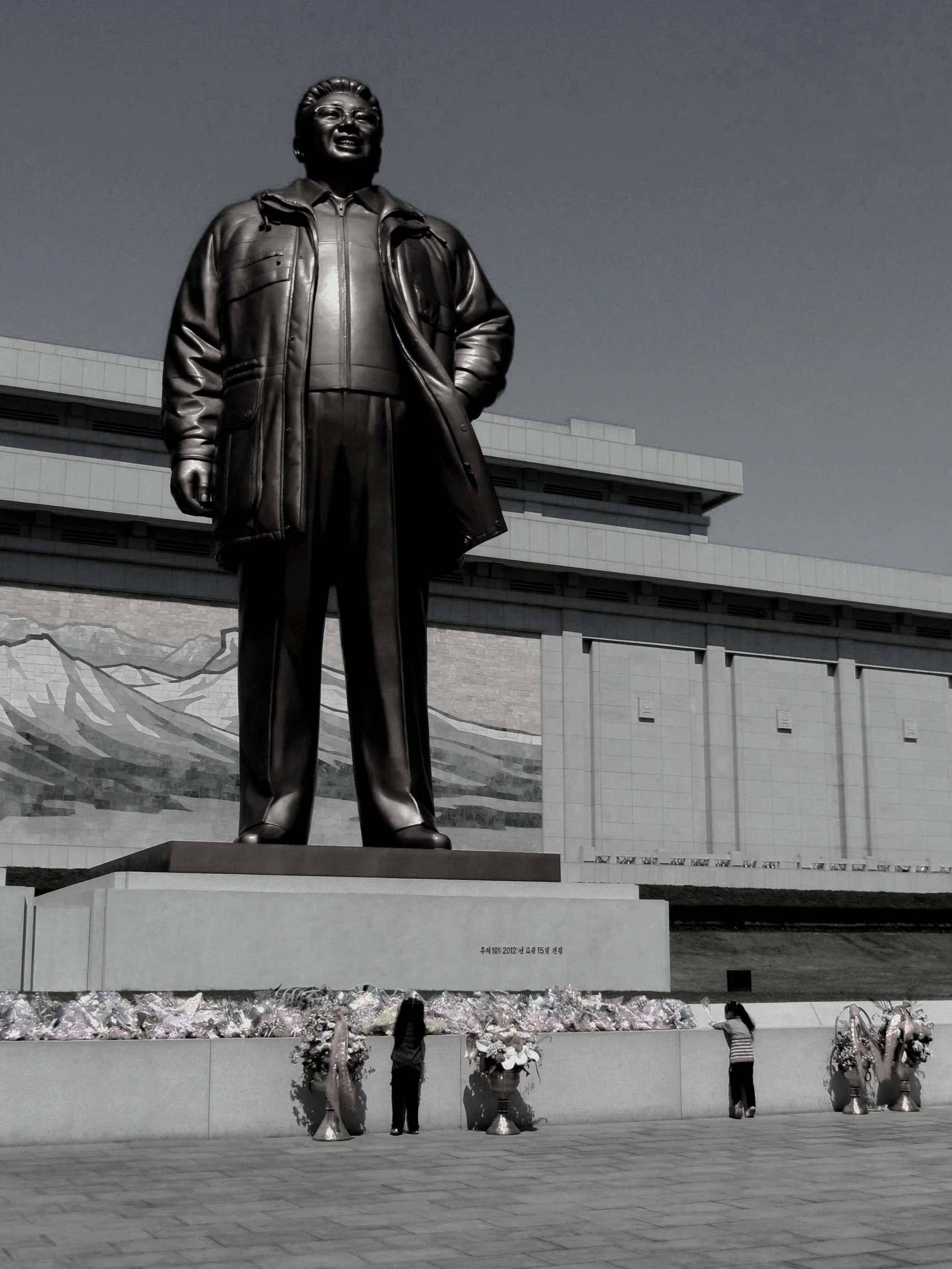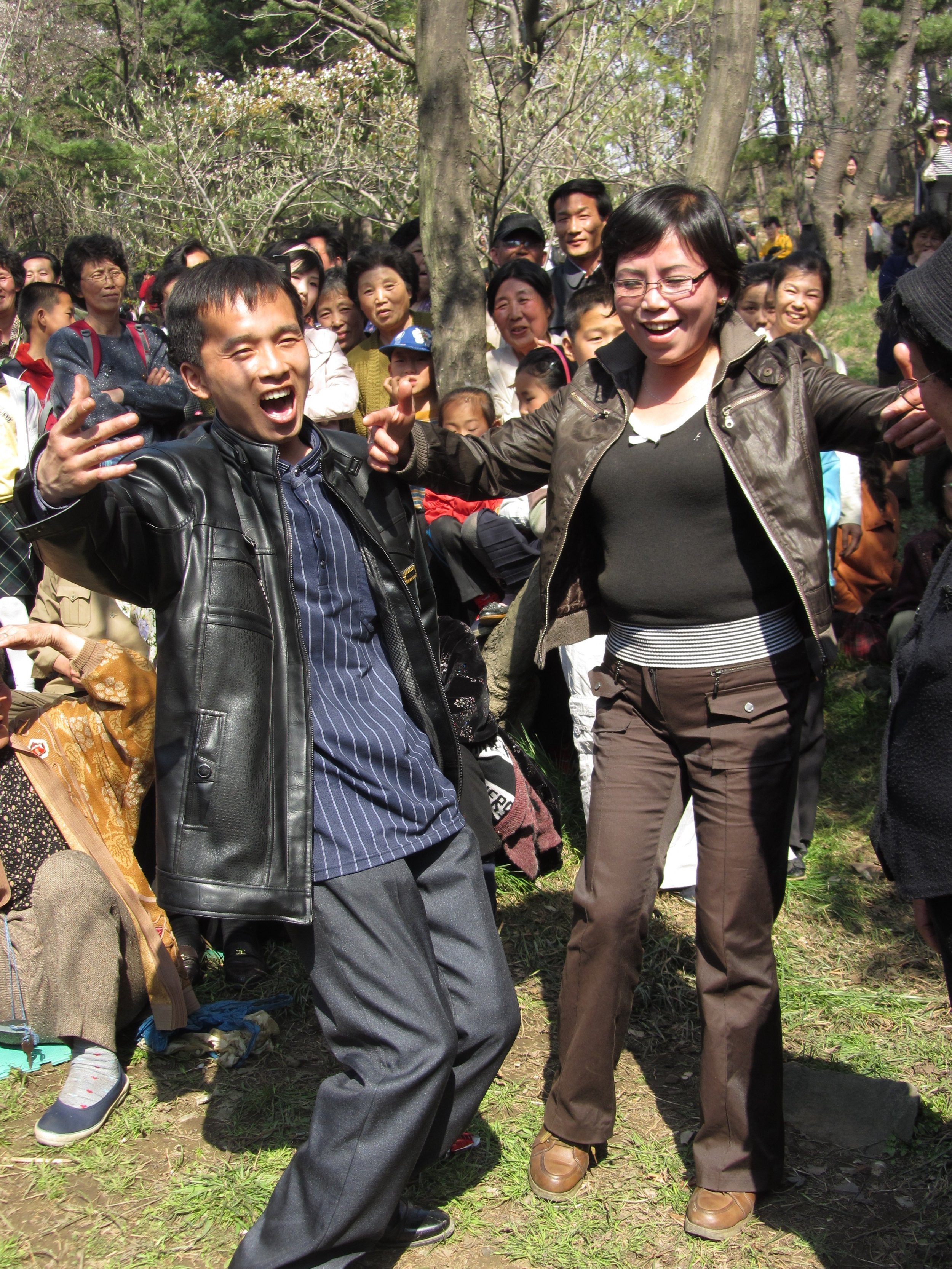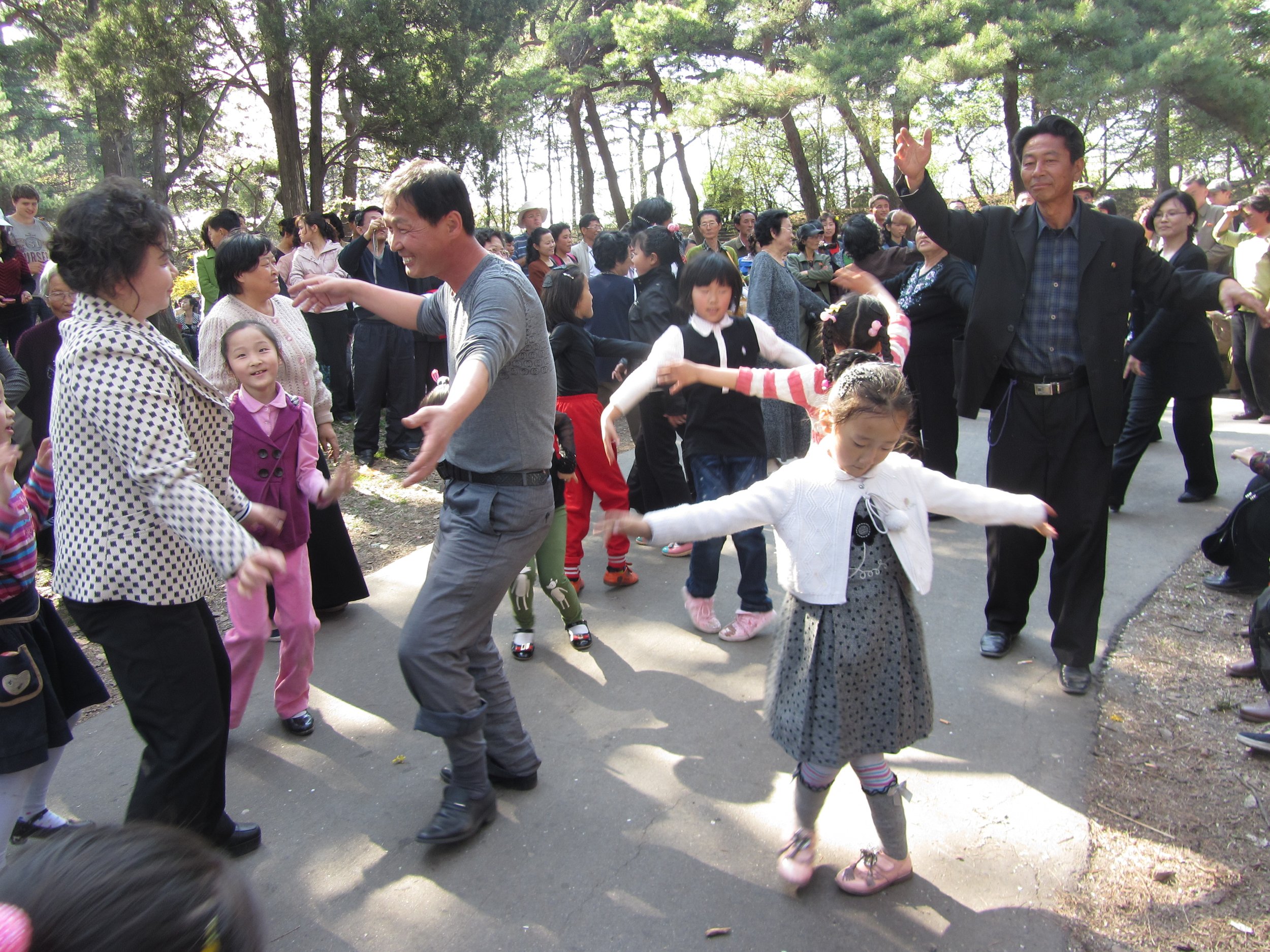Soju - North Korea
NORTHERN COMFORT
Juliet Rix shares the highlight of her North Korean tour with us,
where containment leads to drinking Soju in the park.
On an island in Pyongyang’s Taedong River, the 47-storey Yanggakdo International Hotel does not look welcoming. Not for nothing is it known as ‘the tourist Alcatraz’. Yet the concrete behemoth is in fact a comfortable containment, complete with café-bar and, unexpectedly, its own microbrewery.
Beer is increasingly popular in North Korea with the microbrews especially drinkable. Wine is on the up. And the traditional makkoli (rice wine with tang of slightly off lassi) is, well, interesting. But North Korea’s favourite tipple by far is soju, and (guided, naturally) we shop for this clear grain spirit in a deserted department store. Through the shadow of our first power cut, we can see that the clothes and fridges here sell at prices far beyond the reach of the average citizen. Not so the soju. From well-stocked shelves I pick a couple of recommended bottles - the acorn version is particularly tasty - paying, even in this high-end emporium, about one pound sterling.
Cheap liquor there may be, but beware: North Korea is not a place to let your hair down too far. Just folding your newspaper across an image of the Dear Leader can get you into trouble, and not much more may see you detained somewhere infinitely worse than the Yanggakdo International Hotel. But that doesn’t mean a hint of the local hooch can’t enhance your experience - it certainly did mine.
Soju is poured with both hands to show respect. It’s then downed neat, often in accelerating toasts. The liquor is as omnipresent as it is lethal - almost as lethal as Pyongyang Vodka. Though this 40% firewater would turn out, during our trip beyond the capital, to be my protective spirit.
‘SOJU IS POURED WITH BOTH HANDS TO SHOW RESPECT. IT'S THEN DOWNED NEAT, OFTEN IN ACCELERATED TOASTS’
Our bus having slalomed around copious cracks along the empty expanse of the Youth Hero Highway, we arrived at the faded Ryonggang Spa Hotel complex flanked by armed guards. After dinner (first and third course partly in darkness) we head out into more reliable moonlight for a clam bake. Casually-cooked shellfish isn’t perhaps the safest comestible in a country short even of soap, but “nobody has ever got ill from the clams,” I am firmly assured. I soon realise why: we are carefully instructed to wash each one down with a swig of that vodka - and everyone starts to relax.
Even our North Korean guides are easing up. We've behaved ourselves for several days - bowing low to the towering Kims, not photographing the truck-loads of rag-taggle troops, and only carefully querying tales of Imperial Americans kicking off the Korean War. A little imbibing is oiling the wheels. No-one is letting themselves go, but our guides are more familiar, our soft-spoken leader revealing a dry sense of humour, and questions are flowing both ways.
We are not, I conclude, being pedalled conscious lies. They are telling it as they see it, as they have to see it. And showing us, as they are convinced any good host should, only the best of their country.
This modicum of trust - and more alcohol - delivers up the highlight of the tour. It’s May Day - the only real holiday in the Korean calendar (all the others are Kim days, full of obligatory parading). Pyongyang is playing in the park and we are allowed to join in. There are fairground rides, football, tug of war, picnics, and - as the sun and the soju sink a little lower - dancing.
This is no disco. They dance to Korean folk music, mostly on cassette. Some twirl ballroom-style - variably (un)steady - and there’s a tipsy attempt to pair me up with another member of our group, which I resist. But when I am gently led by a quiet North Korean into a circle of people, from grandparents to children, I follow. Their hands glide smoothly through the air in classical Korean dance, their bodies sway to the sound of a flautist and a traditional drum. I try to mirror their moves, with minimal success, but it doesn’t matter. These people, cut off from the outside world, daily exposed to slogans about the evils of the West, have invited me in, and I’m savouring my moment of language-less connection. I ignore the fading figures of my group and continue to ‘dance’ until the junior guide is sent scuttling back to retrieve me.
It’s our final night. At the Yanggakdo International Hotel we descend to the foreigners’ entertainment zone. Not the ‘Chinese Basement’ (a casino) but the ‘Korean Basement’ (though few Koreans are allowed) which boasts a swimming pool, bowling, billiards and karaoke. Our guides are encouraging some singing, so, un-Korean cocktails in hand, we have a go at Hey Jude and the a-little-too-appropriate Hotel California. (“You can check out any time you like but you can never leave.”)
The Koreans sing beautifully. The Westerners less tunefully. Nonetheless as our tour concludes, I feel a fleeting moment of something like harmony. Or perhaps it’s just the booze.
Images: Juliet Rix
For more stories like this one, be sure to subscribe to our printed magazine.
Twilight (Song By H:SEAN) (Prod. PINOCCHIO) // 정답을 모르겠어




